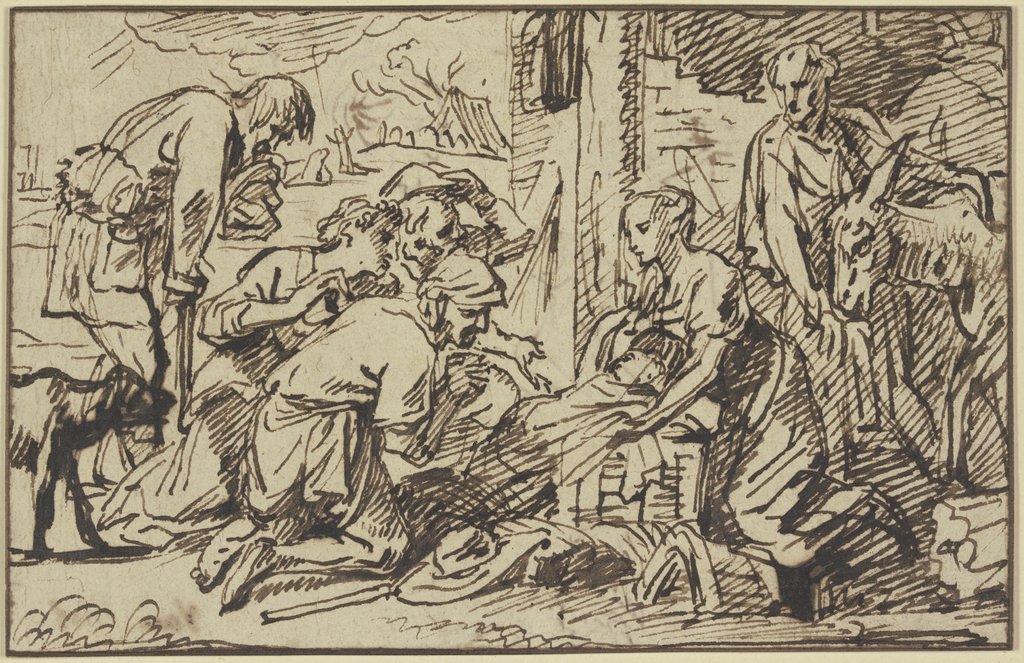Aurelio Porfiri
Speaking of the liturgy, I have repeatedly mentioned how it suffers from an identity crisis that also involves sacred music. The texts given in the Missal are often ignored in the name of songs that are not always of adequate quality. This also applies to major holidays, such as Christmas, although it must be said that here there is a repertoire of songs that constitute an important reservoir for a common repertoire. An example of this is Adeste Fideles, a beautiful melody of uncertain origin with the words of John Francis Wade from the eighteenth century.
I was happily surprised while editing Vittorio Messori’s volume La luce e le tenebre, I was able to see how the well-known writer also had a predilection for this song, “my favorite is Adeste Fideles which, as everyone knows, invites us to rush to Bethlehem to adore the Word incarnate, a child born in a cave. It is a song of great sweetness and majesty, it has words whose beauty can be admired entirely only in the original Latin which, unfortunately, can no longer be heard in our parishes. In fact, it is a great classic, sung by all the most important singers, harmonized and rearranged in thousands of different ways, from the simplest to the most sumptuous with choirs and orchestras at will.” In fact, it is true that it is a song that has met with extraordinary success in all latitudes.
I believe that Messori’s words, “great sweetness and majesty” well describe the character of the song. The melody invites the faithful as if to set out joyfully and triumphantly towards Bethlehem, where they will see and adore the King of angels. The Venite Adoremus reiterated three times in an emphatic crescendo that melts on the word Dominus, which brings us to the humble but grandiose scene of the nativity of the Savior of the world. The popularity of this song is certainly due to the noble simplicity and beauty of the melody, which, proceeds almost always by joint degrees, however, succeeds with rare well-designed jumps to transport the soul of the faithful to join the choir of angels to give praise to the Child who comes, in that moment of history in which the whole past is summed up and the whole future springs up. We too gradually approach this dazzling event and contemplate with the shepherds the One whom humanity awaits with joyful expectation.
In 2012, in his homily for the Christmas Mass, it seems that Pope Benedict XVI echoed these words of the beautiful Christmas song: “Once the angels departed, the shepherds said to one another: Let us go over to Bethlehem and see this thing that has happened, which has been made known to us (cf. Lk 2:15). The shepherds went with haste to Bethlehem, the Evangelist tells us (cf. 2:16). A holy curiosity impelled them to see this child in a manger, who the angel had said was the Saviour, Christ the Lord. The great joy of which the angel spoke had touched their hearts and given them wings. Let us go over to Bethlehem, says the Church’s liturgy to us today. Trans-eamus is what the Latin Bible says: let us go “across”, daring to step beyond, to make the transition” by which we step outside our habits of thought and habits of life, across the purely material world into the real one, across to the God who in his turn has come across to us. Let us ask the Lord to grant that we may overcome our limits, our world, to help us to encounter him, especially at the moment when he places himself into our hands and into our heart in the Holy Eucharist.
“Let us go over to Bethlehem: as we say these words to one another, along with the shepherds, we should not only think of the great “crossing over” to the living God but also of the actual town of Bethlehem and all those places where the Lord lived, ministered and suffered. Let us pray at this time for the people who live and suffer there today. Let us pray that there may be peace in that land. Let us pray that Israelis and Palestinians may be able to live their lives in the peace of the one God and in freedom. Let us also pray for the countries of the region, for Lebanon, Syria, Iraq and their neighbours: that they may live peaceably, that Christians in those lands where our faith was born may be able to continue living there, that Christians and Muslims may co-exist in their respective countries side by side and dwell in God’s peace. The shepherds made haste. Holy curiosity and holy joy impelled them. In our case, it is probably not very often that we make haste for the things of God. God does not feature among the things that require haste. We think and we say that the things of God can wait. And yet he is the most important thing, ultimately the one truly important thing. Why should we not also be moved by curiosity to see more closely and to know what God says to us? At this hour, let us ask him to touch our hearts with the holy curiosity and the holy joy of the shepherds, and thus let us go over joyfully to Bethlehem, to the Lord who today once more comes to meet us.” Let us go to Bethlehem to meet the Lord, this is what Adeste Fideles wants to tell us, hoping that we are listening.
(Image: Adoration of the Shepherds, Pieter van Mol)


 Follow
Follow


